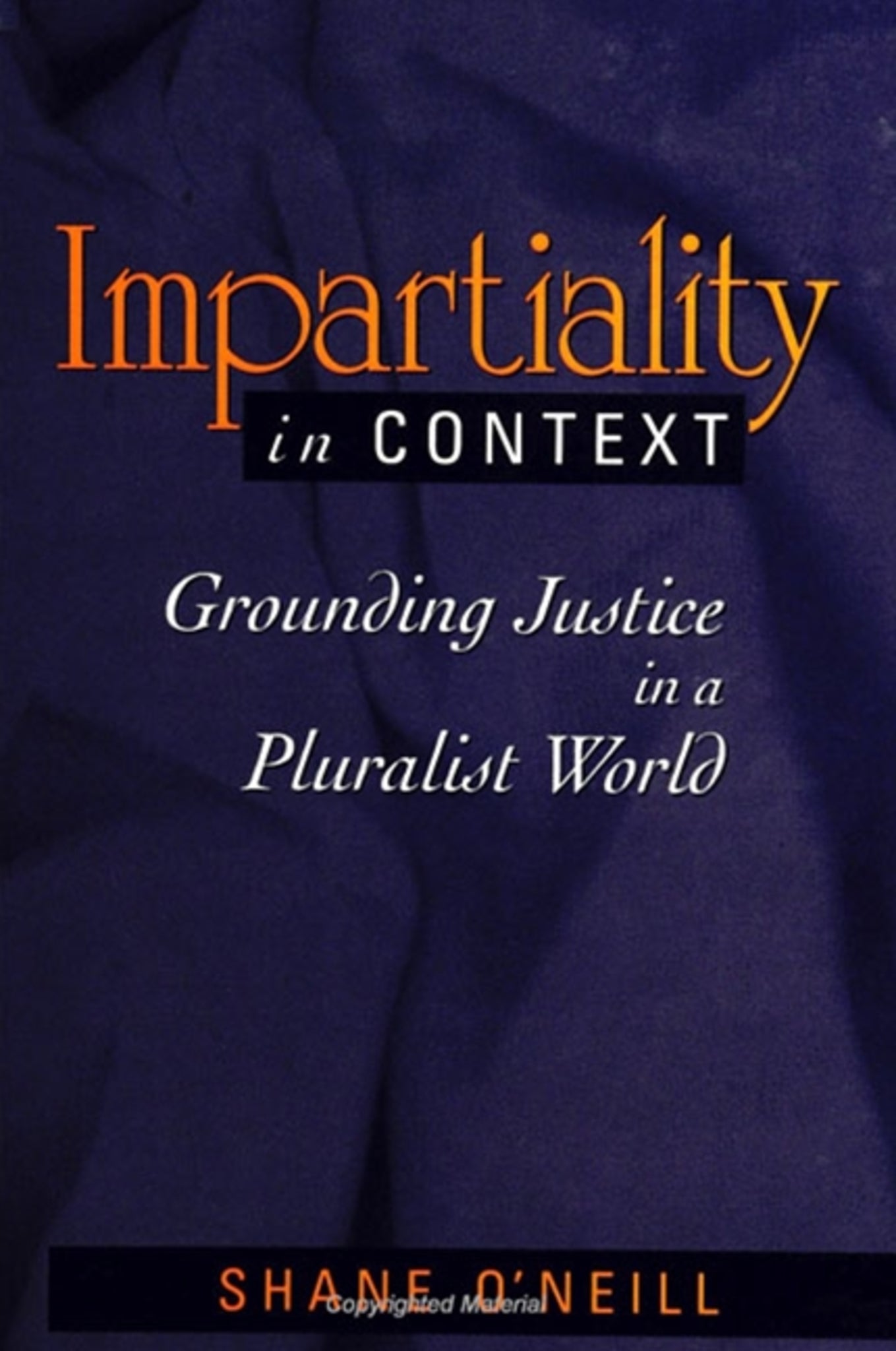We're sorry. An error has occurred
Please cancel or retry.
Impartiality in Context

Some error occured while loading the Quick View. Please close the Quick View and try reloading the page.
Couldn't load pickup availability
- Format:
-
10 July 1997

Assesses critically the work of Rawls, Walzer, and Habermas and presents a theory of justice that responds to two senses of pluralism.
In this book, Shane O'Neill argues that the theory of justice must take seriously two dimensions of pluralism in the modern world. While it must acknowledge the plurality of individual conceptions of the good that is characteristic of every modern society, it must also reckon with the plurality of historically unique, culturally specific, political societies.
O'Neill offers a distinctive perspective on an extremely significant current debate about universalism and particularism in political philosophy. Justice, he maintains, must be understood both in terms of an impartial point of view that respects differing conceptions of the good and in relation to the particular contexts in which disputes about norms and principles arise. Liberals, most notably John Rawls, have tended to privilege the former aspect of justice, while communitarians, especially Michael Walzer, have stressed the latter. O'Neill shows how Habermas's discourse ethics can overcome the limitations of these alternatives by providing theoretical tools that allow us to ground impartiality in particular contexts. This position is developed through an exploration of the complementary roles of moral and ethical discourses and an application of the theory to the political conflict in Northern Ireland.
This careful and detailed philosophical argument offers a valuable critical introduction to a range of important topics, including the communitarian critique of liberalism, feminist perspectives on justice, the interpretive turn in political philosophy, the theory of communicative action, the dynamics of a discursive democracy, and the politics of recognition.


"Shane O'Neill's book is an interesting analysis of Rawls's and Walzer's theories of justice and Habermas's discourse ethics. Its major contribution is to defend the superiority of Habermas's approach against those of Rawls and Walzer and to bring the feminist literature into the discussion of the connections between these three theorists." — Georgia Warnke, University of California, Riverside
"O'Neill's book breaks new ground. The overall structure of the argument is very attractive and convincing: moving between Rawls's monological impartialism and Walzer's dialogical contextualism to open a space for Habermas's discourse ethics. I honestly couldn't put it down." — William Rehg, Saint Louis University
Acknowledgments
Introduction
Part I. John Rawls's Impartialism
1. The Isolation of the Political
Social Justice and Impartiality
Political Constructivism and the Idea of an Overlapping Consensus
Justice as Political and the Charge of Atomism
Neutrality and Its Limits
Citizenship and the Public Sphere
2. The Feminist Challenge
The Original Position and the Danger of Marginalization
Justice in the Family
Gender Blindness in Rawls's Theory
Justice, Care, and Solidarity
Impartiality and Difference
Part II. Michael Walzer's Contextualism
3. Hermeneutics and Justice
Complex Equality
Justice without Procedures
Interpretation and Connected Criticism
Rival Interpretations
The Dialogue of Justice
4. The Limits of Walzer's Immanent Critique
Social Power, Moral Universalism, and the Impartialist Project
Immanent Critique and Ideology
Hermeneutics and Critical Theory
Extending the Universalist Moral Code
Avoiding Partiality
Part III. Jürgen Habermas's Discourse Ethics
5. The Priority of Communicative Action
The Theoretical Roots of Discourse Ethics
Philosophy and Rational Reconstruction
Communicative and Strategic Action
Illocutions, Perlocutions, and Communicative Action's Priority
The Reproduction of the Lifeworld and Critical Social Theory
6. Discourse and Impartiality
Discourse as Reflective Communicative Action
Idealization and Rationality
Arguing against Scepticism
The Advantages of Dialogical Impartiality
Part IV. Impartiality in Context
7. Morality and Ethical Life
Habermas and the Contextualist Challenge
The Scope of the Moral Domain
Hermeneutics and Discourse
Ethical Discourse and Cultural Differences
An Impartialist Politics of Recognition
8. The Case of Northern Ireland
Justice and Pluralism in Northern Ireland
Toward a Constitutional Patriotism
Discursive Legitimation and Northern Ireland's Constitution
Conclusion
Notes
Bibliography
Index



